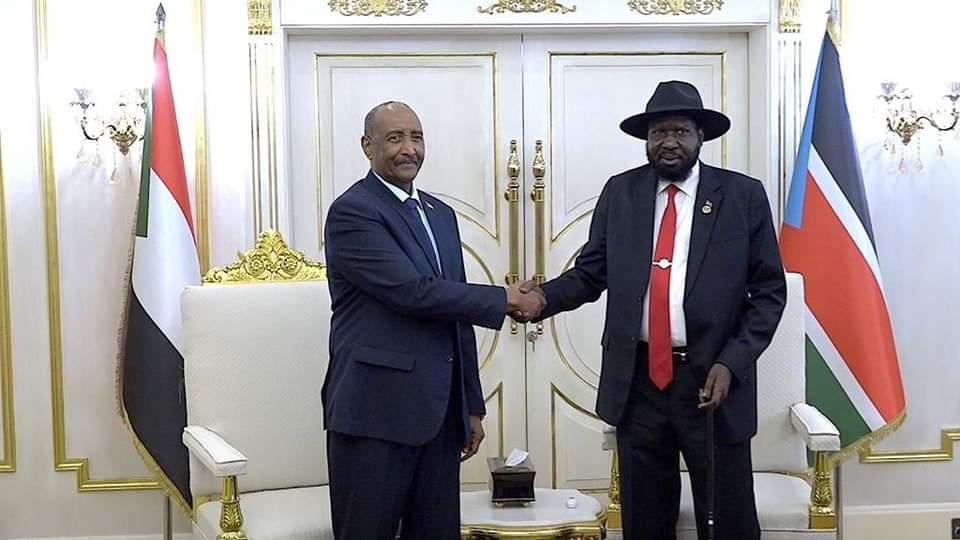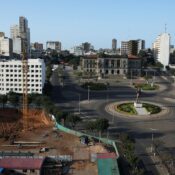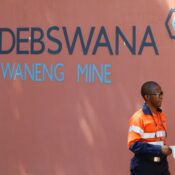
Burhan is in Juba for bilateral discussions regarding Sudan’s conflict
According to Ramadan Abdalla Mohammed, the Foreign Affairs minister of South Sudan, Sudanese military leader Abdel Fattah al-Burhan arrived in Juba on Monday for high-level bilateral discussions.
This is the second bilateral encounter between the Sudanese leader and Khartoum’s immediate neighbors in the past two months.
Abiy Ahmed, the Ethiopian Prime Minister, was hosted by Burhan in July, following which they resolved to address certain matters of concern. Ethiopian Airlines has initiated routine flights to Port Sudan, the provisional capital of the Sudanese junta, despite the ongoing conflict in Sudan. Consequently, relations between Addis Ababa and Khartoum have improved.
Khartoum has been a dependable ally in South Sudan, despite the recent conflict between the Sudanese Armed Forces and the Rapid Support Forces that erupted in April of last year. South Sudan, which is currently in the process of recovering from a civil conflict, has been compelled to accept Sudanese refugees. This has resulted in humanitarian concerns, as there are currently 2.2 million Sudanese refugees residing in overcrowded camps in South Sudan.
“The two leaders are scheduled to discuss critical issues that affect both countries.” Minister Mohammed anticipates that the discussions will concentrate on the promotion of regional peace and stability through constructive dialogue and cooperation.
President Salva Kiir Mayardit greeted Abdel Fattah al-Burhan, who is officially known as the chairman of Sudan’s Sovereign Council, upon his arrival at Juba International Airport.
The negotiations are timely as both nations continue to confront the ongoing repercussions of the Sudanese conflict.
According to official data, an estimated 607,000 South Sudanese refugees who were originally in Sudan have returned to South Sudan, as well as 183,000 Sudanese nationals and 3,500 migrants and exiles from other countries. The total number of Sudanese refugees now stands at 2.2 million, which includes those who fled sporadic clashes prior to the outbreak of the conflict.
Nicolas Haysom, the UN Secretary-General’s Special Representative for South Sudan and director of the UN Mission in South Sudan (UNMISS), articulated an additional alarming concern.
“We have heard that there may be recruitment of young men taking place in South Sudan by the warring parties in Sudan to bolster the numbers of their fighters,” he indicated.
South Sudan’s crude exports have been suspended since February 6, as a result of damage to the Jabelyn-Port Sudan pipeline, which has further complicated the situation. On March 16, a force majeure was declared due to the discovery of gelling between pump stations 4 and 5, which are situated in a military zone.
Local authorities in Raja County, Western Bahr-El-Ghazal State, recently requested intervention from the national government, which served to escalate the tension. The area has been reportedly occupied by Rapid Support Forces (RSF) units, which has resulted in the displacement of local communities and a growing threat to stability.
However, Burhan, who had previously expressed confidence in Kiir’s ability to mediate their conflict, may be in Juba to solidify his political legitimacy. In recent weeks, he has urged the international community to acknowledge his government as the legitimate authority of South Sudan.
All Categories
Recent Posts
Tags
+13162306000
zoneyetu@yahoo.com


